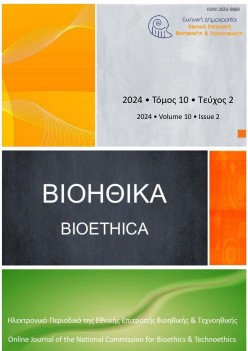AI Training and Copyright: Should Intellectual Property Law Allow Machines to Learn?
Аннотация
This article examines the intricate legal landscape surrounding the use of copyrighted materials in the development of artificial intelligence (AI). It explores the rise of AI and its reliance on data, emphasizing the importance of data availability for machine learning (ML) systems. The article analyzes current relevant legislation across the European Union, United States, and Japan, highlighting the legal ambiguities and constraints posed by IP rights, particularly copyright. It discusses possible new solutions, referencing the World Intellectual Property Organization's (WIPO) call for discussions on AI and IP policy. The conclusion stresses the need to balance the interests of AI developers and IP rights holders to promote technological advancement while safeguarding creativity and originality.
Article Details
- Как цитировать
-
Fernandes, P. M. (2024). AI Training and Copyright: Should Intellectual Property Law Allow Machines to Learn?. Bioethica, 10(2), 8–21. https://doi.org/10.12681/bioeth.39041
- Выпуск
- Том 10 № 2 (2024): Bioethica
- Раздел
- Original Articles

Это произведение доступно по лицензии Creative Commons «Attribution» («Атрибуция») 4.0 Всемирная.
Authors who publish with this journal agree to the following terms:
- Authors retain copyright and grant the journal right of first publication with the work simultaneously licensed under a Creative Commons Attribution CC BY 4.0 License, which allows for immediate free access to the work and permits any user to read, download, copy, distribute, print, search, or link to the full texts of articles, crawl them for indexing, pass them as data to software, or use them for any other lawful purpose. Appropriate credit must be given by citing the author(s) and the original publication in this journal.
- Authors are able to enter into separate, additional contractual arrangements for the non-exclusive distribution of the journal's published version of the work (e.g. post it to an institutional repository or publish it in a book), with an acknowledgement of its initial publication in this journal.
We encourage authors to deposit their articles, as well as data underlying the publications, in institutional and/or other appropriate subject repositories.
Bioethica permits and encourages authors to archive the final publication pdf in institutional (e.g. the repository of the National Hellenic Research Foundation) or other appropriate subject repositories (e.g. SSOAR repository for social sciences), in compliance with institutional and/or funder open access policies, after publication in the BIOETHICA. Authors must provide bibliographic details that credit publication in the journal, as well as related funding details (when applicable).
Lists of institutional and other subject-based academic open access repositories can be found listed by country at the registry http://opendoar.org/countrylist.php
If your institution does not possess a repository you may deposit a copy of your paper at no cost with www.zenodo.org , the repository supported for open access research in the EU by the European Commission, through the project OpenAIRE (www.openaire.eu )



